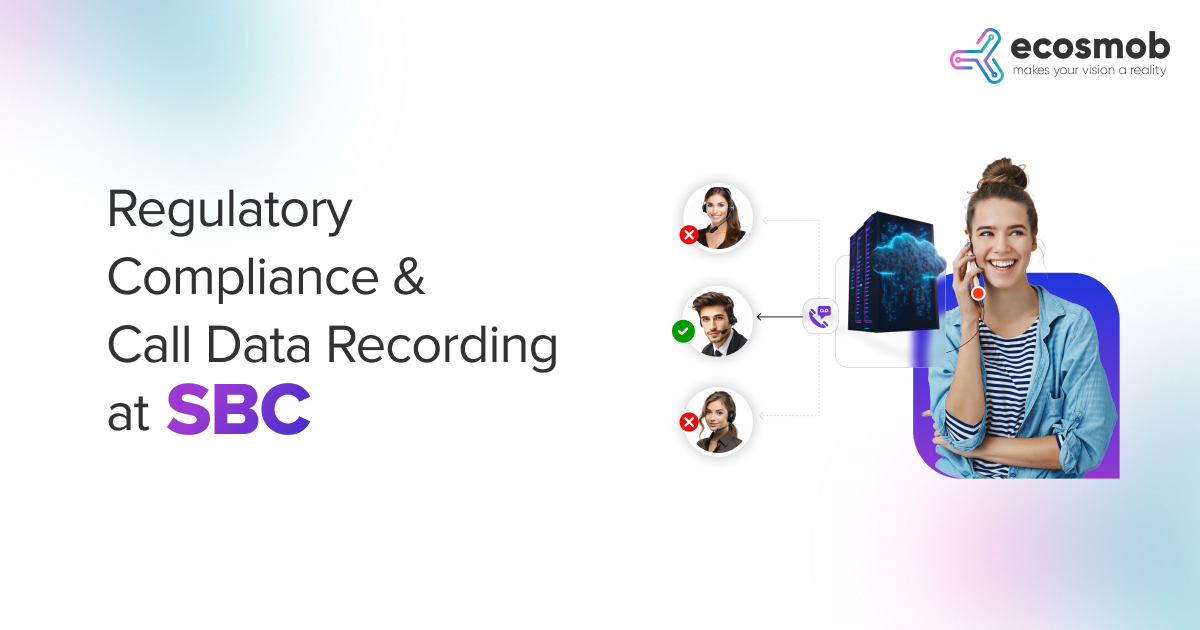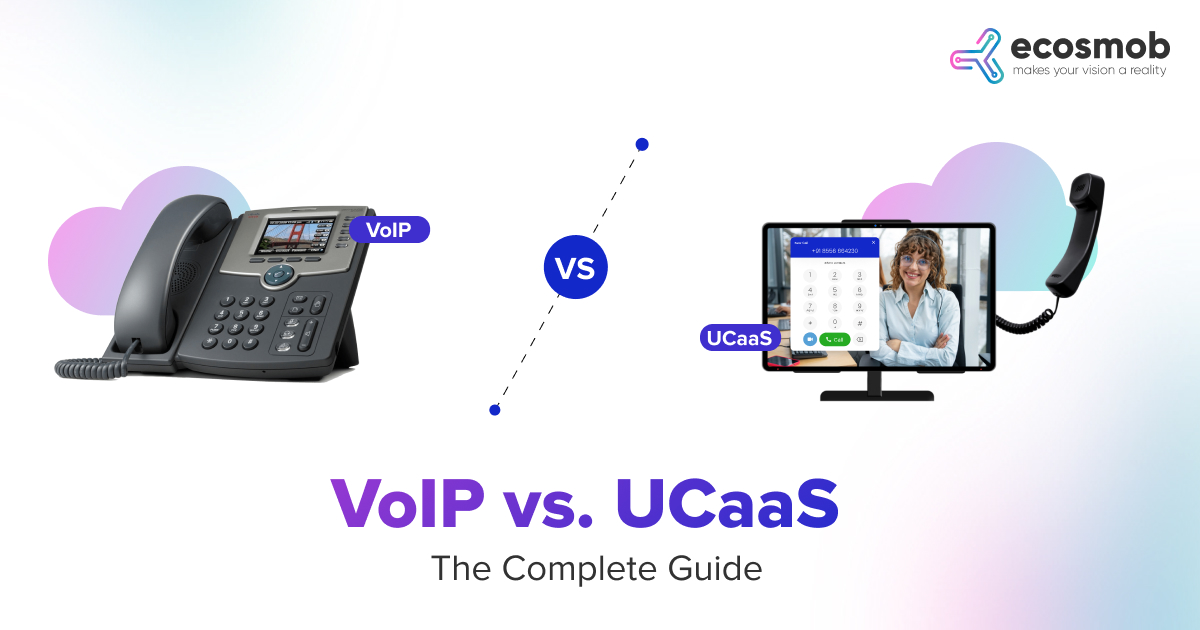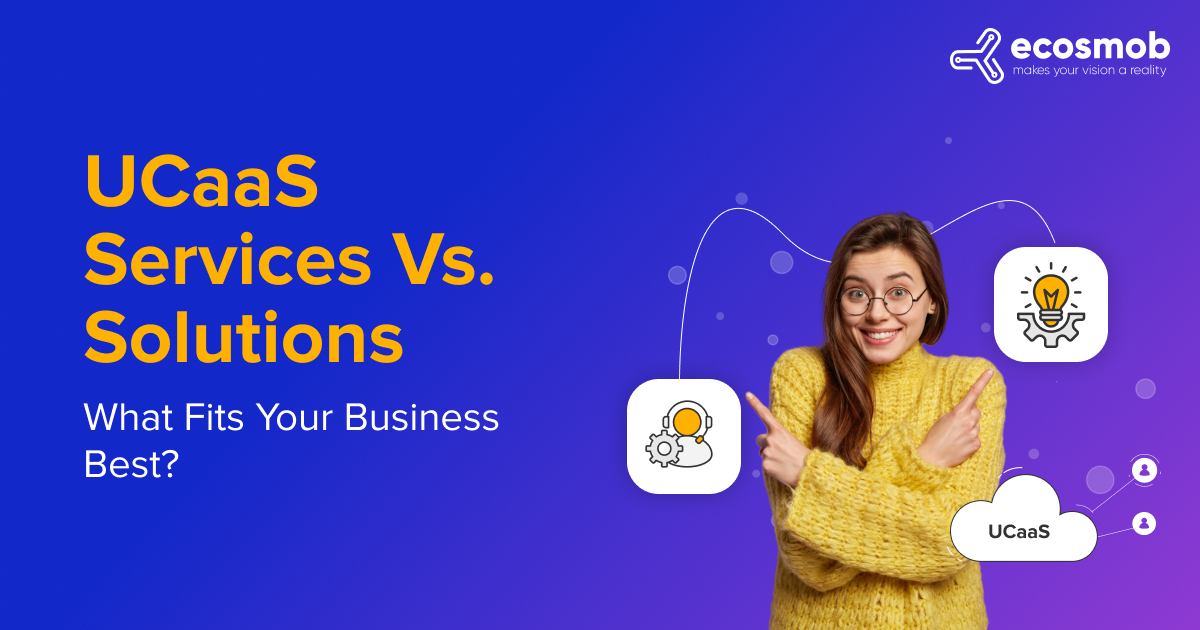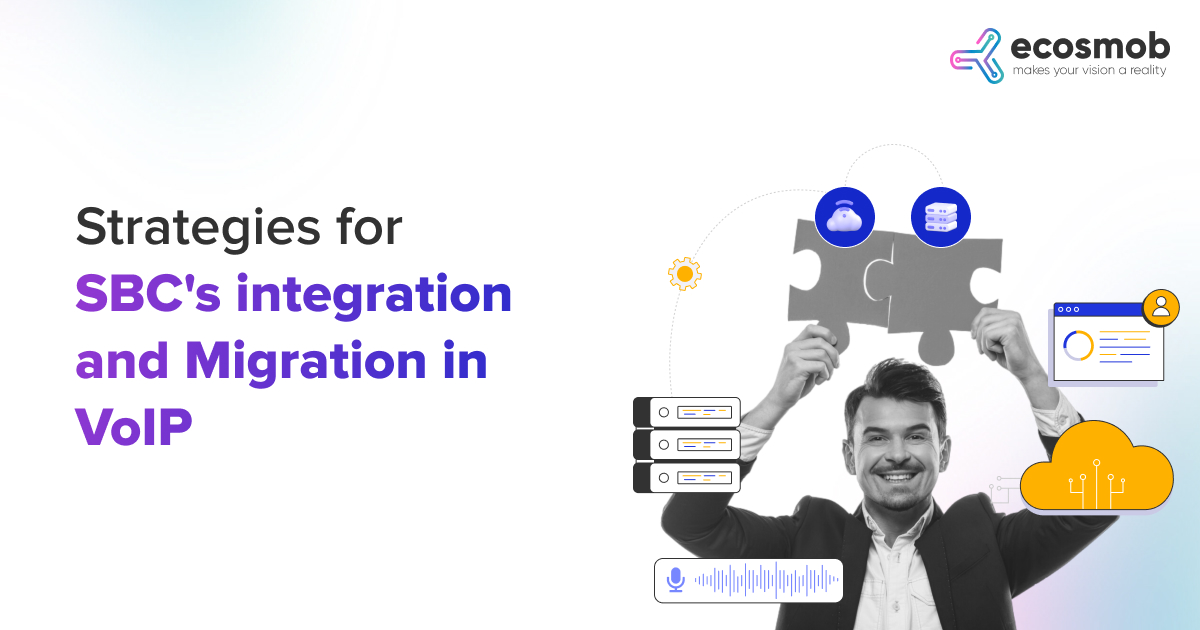Quick Summary: Explore the differences between VoIP development and ready-to-use VoIP products. Discover the pros and cons of custom development versus ready-made VoIP products.
In the fast-paced world of business telecommunications, VoIP technology has revolutionized how companies connect, merging the versatility of internet-based communication with the reliability of traditional telephony. Whether you’re considering VoIP development from scratch or opting for pre-built VoIP products, understanding the distinction of each approach can significantly impact your business’s communication efficiency and bottom line. In this blog, we’ll delve deep into the VoIP industry, comparing custom VoIP features and ready-to-use VoIP solutions, helping you make an informed decision.
Get a custom quote for our VoIP solutions and see a 15% increase in your operational efficiency.
Exploring VoIP Solutions: Development or Ready-to-Use?
When deciding between developing a custom VoIP solution or adopting a ready-to-use service, here are several key considerations that can help you decide.
What is VoIP Development?
VoIP development involves creating a bespoke VoIP telephone system tailored to the specific needs of a business. This approach often appeals to companies looking for unique features that integrate seamlessly with existing infrastructures, such as Customer Relationship Management (CRM) systems.
| According to future market insights, the voice-over-Internet Protocol market is expected to grow at a CAGR of 9.8%. By 2033, the market is expected to reach a worth of US$ 118.86 billion, from its current share of US$ 43.92 billion in 2023. |
A white-label VoIP solution, which allows branding of the service as your own, is a popular choice among firms aiming to market VoIP services under their banner.
Pros and Cons of Custom VoIP Solutions
- Pros: Custom solutions offer specific features tailored to business needs, potentially providing a competitive edge with unique functionalities unavailable in standard packages.
- Cons: The cost of custom VoIP can be significantly higher in terms of initial investment and ongoing maintenance.
Understanding Ready-to-Use VoIP Products
Alternatively, Ready-to-use VoIP products are pre-built solutions that are broadly applicable and easy to deploy. Seasoned VoIP development companies typically develop these products and are ready out of the box, with features and functionalities that meet the general needs of most businesses.
Pros and Cons of Ready-to-Use VoIP Products
- Pros: These products are often more straightforward to implement and cost-effective upfront than custom-built solutions.
- Cons: They may need more specific features, which some businesses require, leading to compromises in functionality.
VoIP Development vs. Ready-to-Use VoIP Products: Which One is Right for You?
Let’s analyze the key components of VoIP development and Ready-to-use VoIP products to ensure your company’s continued existence and growth!
-
Customization and Flexibility
VoIP Development: Custom VoIP development offers unparalleled flexibility, allowing businesses to design a system that perfectly fits their operational needs. It could include specialized functionalities such as advanced call routing, unique interactive voice response (IVR) setups, or specific security protocols not typically available in standard packages.
Ready-to-Use VoIP Products: These products provide a broad range of features that cater to the general needs of many businesses. However, the scope for modifying these features is limited, which can be restrictive for companies needing a precise match for their complex business processes or unique industry requirements.
-
Cost Implications
VoIP Development: While the upfront cost for a custom VoIP solution provider is higher due to the resources required for design, development, and implementation, this could be a worthwhile investment for businesses that want specific capabilities. Over time, a system that matches business requirements can result in greater efficiency and cost savings, offsetting the first expenditure.
Ready-to-Use VoIP Products: These solutions are less expensive initially, making them attractive for small to medium-sized businesses or those with limited budgets. The trade-off comes with potential limitations in functionality and possible future costs associated with needing additional features or capabilities, which may only be available through more expensive upgrades or customizations.
-
Time to Deployment
VoIP Development: The process of developing a custom VoIP system is time-intensive. It involves gathering detailed requirements, creating a design, developing the system, and conducting thorough testing before going live. This extended timeline can be a drawback for businesses that need an immediate solution.
Ready-to-Use VoIP Products: The essential advantage of these products is their quick deployment. Since they come pre-configured with critical features, businesses can often start using them almost immediately after purchase, which is crucial when time constraints are a factor.
-
Scalability and Future Needs
VoIP Development: The first consideration in the design of a custom VoIP system is future scalability. Long-term flexibility is provided by the system’s ease of adjustment to new requirements without significant overhauls when the business expands or its needs alter.
Ready-to-Use VoIP Products: Although these products can scale to meet increased demands, the process often involves buying additional licenses or integrating supplementary modules. It can become expensive and still might not provide the exact functionality needed.
-
Support and Maintenance
VoIP Development: Opting for a custom solution usually means entering a support agreement with the development company. It ensures you can quickly resolve any issues, and the system can be updated or modified, with support tailored specifically to the business’s system.
Ready-to-Use VoIP Products: These come with standardized support plans provided by the vendor. While beneficial for general issues, the support may not cover more specific problems or customization needs, which could be a significant disadvantage for some businesses.
-
Type of VoIP Solutions Offered
VoIP Development: Businesses can request virtually any VoIP solution, including white-label VoIP services that can be branded as their own, enhancing their market presence and offering an additional revenue stream.
Ready-to-Use VoIP Products: Standard VoIP solutions are designed to be functional and user-friendly but typically do not offer white-label options. It means businesses must use the product as provided, with the branding and specifications set by the vendor.
-
Competitive Advantage
VoIP Development: Custom VoIP systems can incorporate innovative features that give businesses a competitive edge. They can tailor these unique features to improve customer service, enhance internal workflows, or offer services that competitors do not.
Ready-to-Use VoIP Products: While they fulfill essential communication needs efficiently, they lack the potential for differentiation that custom systems offer. Businesses need help to stand out solely based on their VoIP capabilities.
-
Regulatory Compliance
VoIP Development: Industry regulation and standards can specifically design custom solutions to comply with standards essential for businesses in regulated sectors like healthcare or finance. This approach ensures that all communication solutions are compliant from the outset.
Ready-to-Use VoIP Products: Basic regulatory standards are generally met, but specific industries with stringent compliance requirements need more. Customizing these products to meet such standards requires time and effort.
-
Innovation and Updates
VoIP Development: Businesses can push for continuous innovation within their VoIP system, requesting updates or new features as their market evolves. This agility ensures that the communication infrastructure can adapt to emerging technologies or business needs.
Ready-to-use VoIP products: The service provider manages updates and innovations; businesses have to wait for the provider to release updates or new features, which may only sometimes align with individual business timelines or specific needs.
-
Total Ownership and Control
VoIP Development: The company that commissions the system retains full ownership of the software, granting it complete authority over its use, modifications, and security measures. This degree of control is beneficial for companies that value specific functionality and data security.
Ready-to-use VoIP products: On the other hand, when using ready-to-use VoIP products, the business essentially licenses the technology from a provider. This arrangement typically limits the degree of control a company has over the system, as it must operate within the set parameters and capabilities predefined by the vendor’s software.
In-Depth Comparison Between VoIP Development and Ready-to-Use VoIP Products
| Aspect | VoIP Deployment | Ready-to-use VoIP Products |
| Customization & Flexibility | High flexibility; custom features for specific needs. | Limited customization; broad features suitable for general needs. |
| Cost Implications | Higher initial costs but potential long-term savings. | Lower upfront costs and potential future expenses for upgrades. |
| Time to Deployment | Lengthy development and testing process. | Quick deployment due to pre-configured features. |
| Scalability & Future Needs | Easily scalable without significant changes. | Scalable with additional costs for licenses or modules. |
| Support & Maintenance | Custom support for tailored maintenance. | Standardized support plans may not cover specific needs. |
| Type of Solutions Offered | Custom solutions like white-label services are possible | Standard solutions without white-label options. |
| Competitive Advantage | Innovative features for a competitive edge. | Basic features, less potential for differentiation. |
| Regulatory Compliance | Designed to meet specific regulations from the start. | Meets basic standards; customizing for specific regulations is challenging. |
| Innovation and Updates | Continual innovation through updates on request. | Provider-controlled updates may not align with business needs. |
| Total Ownership and Control | Full ownership and complete control over the system. | Limited control, dependent on vendor’s terms. |
Choosing the Right VoIP Solution for Your Business
Every business is unique, and the type of VoIP service or solutions you choose should reflect your specific operational needs and strategic goals. Consider the following when making your decision:
- Business Size and Scope: Larger enterprises benefit more from custom VoIP features due to their complex needs and larger customer bases.
- Future Scalability: Anticipate the potential growth of your business and how your VoIP needs might evolve.
- Technical Support: Ensure whichever VoIP solution you choose has reliable support from a reputable VoIP development company.
Continuing Forward with Assurance
Deciding between VoIP development and ready-to-use VoIP products involves carefully evaluating your business’s communication needs, budget, and long-term goals. Considering the integration capabilities, cost implications, and specific VoIP solutions available, you can choose Ecosmob Technologies that meets your current requirements and supports your business’s growth. Remember, Ecosmob is the right VoIP solution that aligns perfectly with your business strategy, ensuring seamless, efficient, cost-effective communications across your organization. Reach us today, and let us assist you in offering more adaptable, affordable, and scalable solutions!
Unlock our advanced tools and watch your efficiency soar!
FAQs
What is the difference between VoIP development and ready-to-use VoIP products?
VoIP development involves creating a custom VoIP system tailored to specific business needs, including unique features and integrations like CRM systems. On the other hand, ready-to-use VoIP products are pre-built solutions designed to be quickly deployed and easily used, often as part of a white-label VoIP solution.
What are the pros and cons of custom VoIP development?
Pros: Customization to exact business requirements, potential for proprietary features, and integration with existing systems.
Cons: Higher initial costs, longer deployment time, and the need for ongoing maintenance and updates by a skilled VoIP development company.
How does integrating VoIP with CRM enhance business operations?
Integrating VoIP with CRM systems allows businesses to enhance customer interactions by automating call logging, facilitating quick access to customer information during calls, and enabling better customer service and follow-up strategies.
What types of VoIP solutions are available for businesses?
Businesses can choose from various VoIP solutions, including IP PBX systems, cloud-based VoIP services, SIP trunking, and hosted VoIP services. Each kind has unique characteristics and advantages suited to the demands and sizes of particular businesses.
What should businesses consider when choosing a VoIP development company?
Businesses should evaluate the company's expertise in the VoIP industry, their experience with similar projects, the scalability of their solutions, customer support quality, and the ability to provide a comprehensive, cost-effective VoIP solution.










